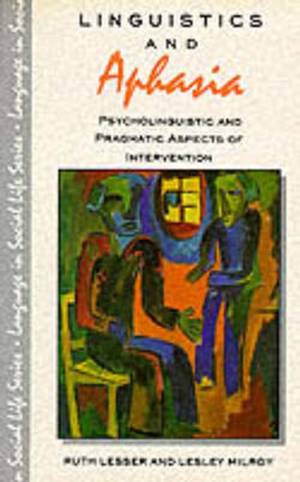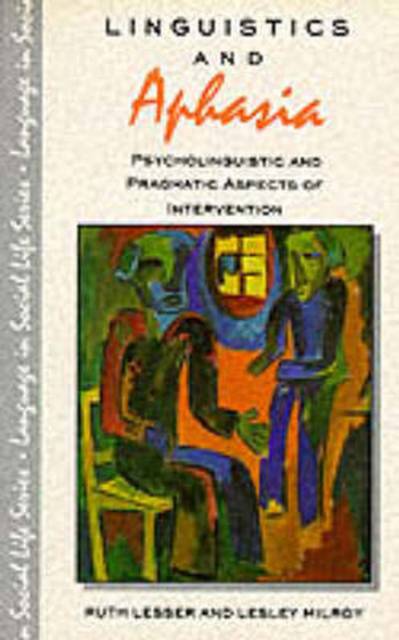
En raison d'une grêve chez bpost, votre commande pourrait être retardée. Vous avez besoin d’un livre rapidement ? Nos magasins vous accueillent à bras ouverts !
- Retrait gratuit dans votre magasin Club
- 7.000.000 titres dans notre catalogue
- Payer en toute sécurité
- Toujours un magasin près de chez vous
En raison de la grêve chez bpost, votre commande pourrait être retardée. Vous avez besoin d’un livre rapidement ? Nos magasins vous accueillent à bras ouverts !
- Retrait gratuit dans votre magasin Club
- 7.000.0000 titres dans notre catalogue
- Payer en toute sécurité
- Toujours un magasin près de chez vous
Linguistics and Aphasia
Psycholinguistics and Pragmatic Aspects of Intervention
Ruth Lesser, Lesley Milroy
148,45 €
+ 296 points
Format
Description
Linguistics and Aphasia is a major study of recent developments in applying psycholinguistics and pragmatics to the study of acquired language disorders (aphasia) and their remediation.
Psycholinguistic analyses of aphasia interpret disorders in terms of damaged modules and processes within what was once a normal language system. These analyses have progressed to the point that they now routinely provide a model-based rationalefor planning patient therapy. Through a series of case studies, the authors show how the psycholinguistic analysis of aphasia can be assessed for its effectiveness in clinical practice. Pragmatic approaches to the study of aphasia are of more recent origin. Ruth Lesser and Lesley Milroy evaluate their considerable significance to the study of aphasia and their relevance to practical issues of diagnosis and treatment. Controversial analysis, in particular, offers a fruitful and productive framework within which to assess the functional adequacy of the language used by aphasic speakers in everyday contexts.Spécifications
Parties prenantes
- Auteur(s) :
- Editeur:
Contenu
- Nombre de pages :
- 396
- Langue:
- Anglais
- Collection :
Caractéristiques
- EAN:
- 9780582022218
- Date de parution :
- 15-02-93
- Format:
- Livre broché
- Format numérique:
- Trade paperback (VS)
- Dimensions :
- 139 mm x 216 mm
- Poids :
- 471 g

Les avis
Nous publions uniquement les avis qui respectent les conditions requises. Consultez nos conditions pour les avis.






